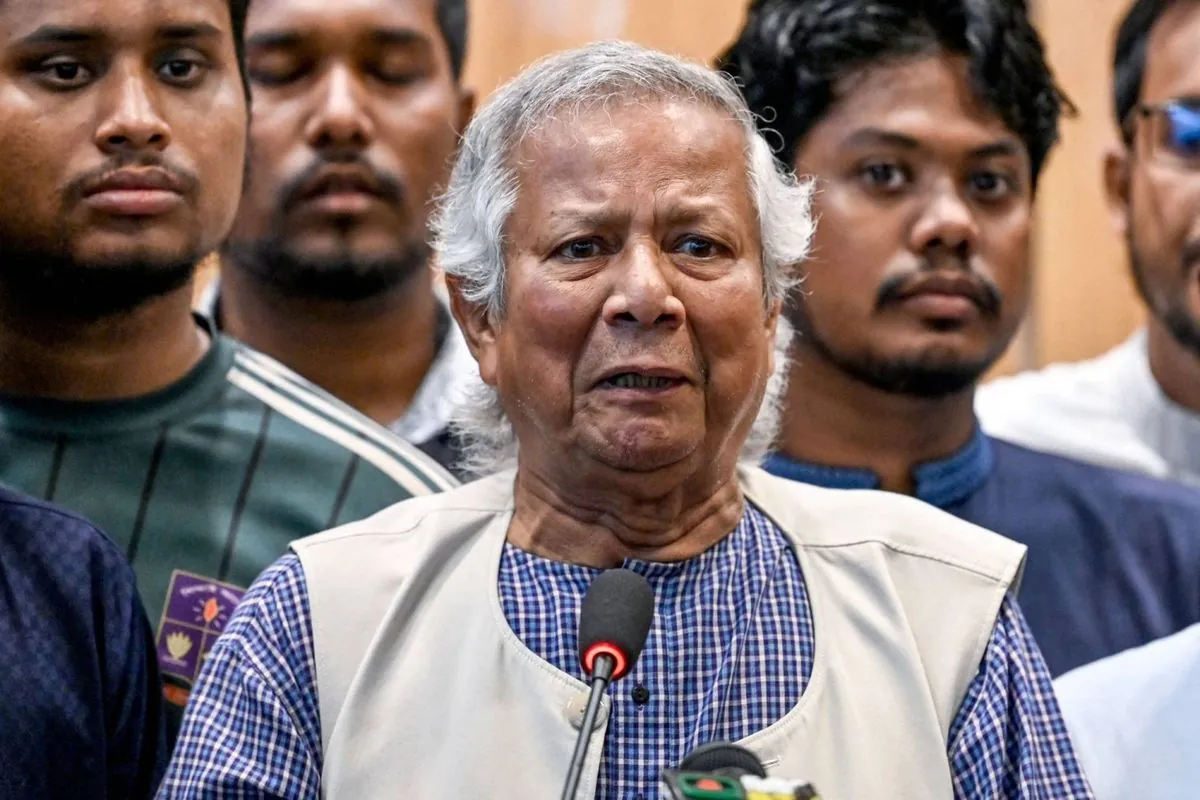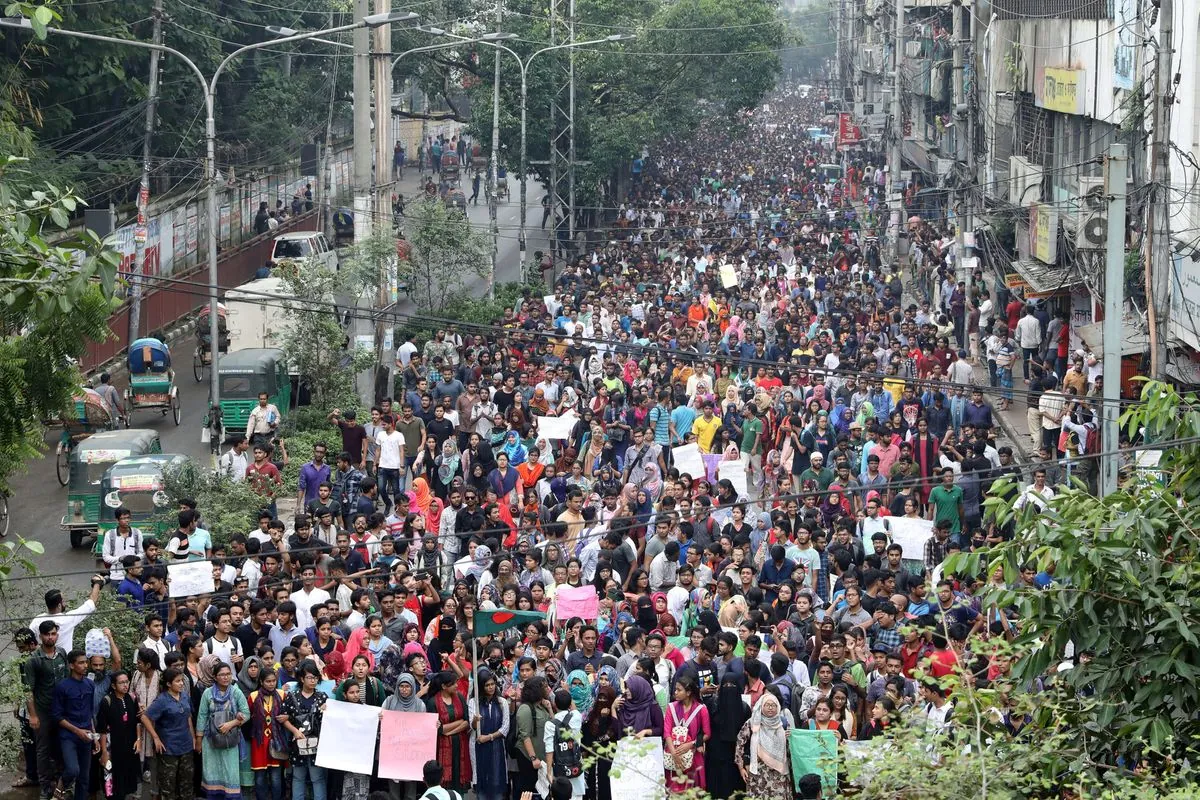Nobel Laureate Yunus Leads Bangladesh's Interim Government Amid Reforms
Muhammad Yunus, Nobel Peace Prize winner, heads Bangladesh's interim government following student-led protests. High-profile resignations and judiciary reforms mark a significant shift in the country's political landscape.

In a significant turn of events, Muhammad Yunus, the renowned Nobel laureate, has assumed leadership of Bangladesh's interim government. This development comes in the wake of widespread student protests against the previous administration's job quota system, which ultimately led to the resignation of Prime Minister Sheikh Hasina.
Speaking to journalists on Sunday night, Yunus addressed the recent high-profile resignations, including those of the chief justice, five justices, and the central bank governor. He affirmed the legality of these departures, stating, "Legally ... all the steps were taken." These changes mark a dramatic transformation in Bangladesh's political landscape, occurring just days after Hasina's departure to India.
Yunus, aged 83, emphasized the interim government's commitment to restoring the independence of the judiciary. He expressed strong criticism of the former chief justice, Obaidul Hassan, referring to him as "just a hangman." In a move that underscores the influence of the student-led movement, Syed Refaat Ahmed was appointed as the new chief justice on Sunday, following a proposal by student protest leaders.
The student protesters, who have vowed to cleanse the political system of what they perceive as Hasina's autocratic rule, played a crucial role in bringing Yunus to power. He revealed that the students approached him, stating he was the only one they could trust. Yunus described the situation as a "student-led revolution," adding, "It's not my dream, it's their dream. So I'm kind of helping them to make it come true."

While the interim government is expected to announce new elections, the timing remains uncertain. Yunus, known for his pioneering work in microcredit and poverty alleviation, brings a wealth of experience to his new role. He was awarded the Nobel Peace Prize in 2006 for his innovative approach to helping impoverished individuals, particularly women, through microfinance.
Yunus's appointment as interim leader marks a significant shift in his relationship with Bangladesh's political establishment. He has been a longtime critic of Hasina's government and faced numerous challenges during her administration. In 2008, Hasina's government launched investigations into Yunus and his Grameen Bank. Later, in 2013, he was put on trial for allegedly receiving money without government permission, including his Nobel Prize and book royalties. Yunus has consistently denied these allegations, with his supporters claiming he was targeted due to his strained relations with Hasina.
Throughout his career, Yunus has been a vocal advocate for sustainable development and poverty alleviation. His Grameen Bank model has been replicated in over 100 countries, demonstrating the global impact of his work. As he takes on this new role, many are watching to see how his expertise in social entrepreneurship and economic development will influence Bangladesh's political and economic future.
"We chose Dr. Yunus because he represents the change we seek. His integrity and vision for a corruption-free Bangladesh align with our goals for the nation's future."
As Bangladesh enters this new phase under Yunus's interim leadership, the country faces the challenge of balancing political reform with economic stability. The coming months will be crucial in determining the long-term impact of this student-led revolution on Bangladesh's democratic institutions and socio-economic landscape.


































